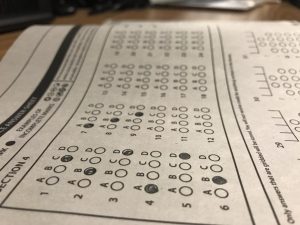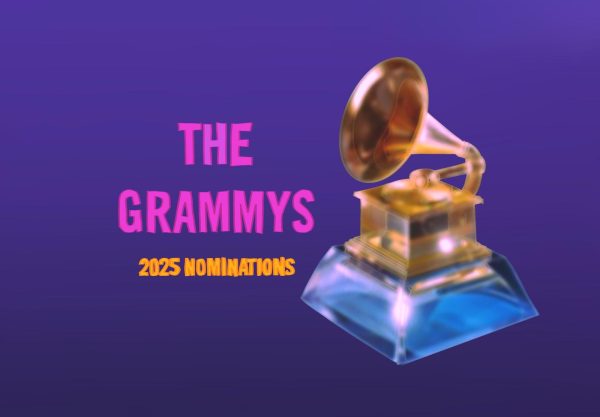What are “Gifted and Talented” Students Really Gifted With?
Many Gifted students experience a lack of motivation stemming from their unique academic upbringing.
Congratulations. You’re Gifted.
‘Gifted with what?’ you might ask. That is an excellent question—one that no one in the entire United States educational system seems to have a direct answer to. Since the program’s initiation by the Javits Gifted and Talented Students Education Act of 1988, the label of “Gifted” has been a point of contention: who qualifies as Gifted, and what might come of labeling kids in this way?
The definition of a “Gifted” child varies from state to state and even between counties (which should be enough to raise eyebrows in itself), but Miami-Dade county defines a Gifted child as one who “has superior intellectual development and is capable of high performance.” In order to be designated “Gifted” upon entering elementary school, a child must receive a minimum IQ score of 130 as well as a “demonstrated need” for specialized education.
This process is not just flawed, but is designed to allow children to fall through its cracks. Parents who are new to the area (or the country) and are unaware of this process also instantly disallow their children from receiving the “Gifted” label. Instantly, only families with a certain amount of and familiarity with the education system are capable of having “Gifted” children.
There is also the question of the psychological repercussions of labeling children at such a young age; what happens when you take one group of children and tell them that they are smarter, luckier, more gifted than another?
Because the Gifted program is somewhat new, only established in 1988, we are just beginning to see the possible responses to this question. One answer that has taken hold of social media is the concept of “Gifted Child Burnout,” in which children who place their self-worth solely in their academic achievements find it hard to handle rejection or truly celebrate success.
When Gifted kids reach high school, college or beyond and eventually realize that they can no longer rely on their superior intelligence to produce perfect grades, they may quickly lose a sense of self. Years spent without learning study methods may catch up to older students, who feel “burned-out” and discouraged at their lack of immediate successes.
This phenomenon of “burnout” may seem like just a trend, but as a Gifted student myself, it resonated with me. Beyond limited conversations with my peers, I never realized that it was something other Gifted kids experienced. Although I was years ahead in most of my classes, developmentally, organizationally and socially I struggled immensely.
Once I reached the higher-level courses that high school had to offer, I could no longer rely on my procrastination and subpar memorization tactics to carry me to the grades I was expected to have. There were large shoes to fill, and falling short felt like I was not only disappointing myself, but disappointing the school system that bestowed me with such a seemingly prestigious label.
By no means do I mean to seem entitled; I know that this label comes with a certain privilege and positive expectations from most teachers that I personally benefit from. However, that does not invalidate the issues that have stemmed from it; although I may be better adapted than I was when I began high school, the remnants of the constant praise of “Gifted kids” in general by former teachers and administration added a consistent pressure for me to outperform my peers and my own precedents year after year.
This is in no way a unique experience, but a well-documented psychological phenomenon; students who succeed at an early age with little effort fail essential life skills that would serve them well later in life, which is bound to culminate in mental and/or academic struggles at some point.
“Being labeled ‘Gifted’ from a young age has had various impacts on me. I realize how privileged I am because I was raised in a home where I was read to and educated from an early age, which I think put me ahead of a lot of students who may not have had this advantage. At the same time, I’ve struggled a lot with things that don’t come naturally to me,” junior Jasming Senel said.
Although the “Gifted” program may come from a genuine desire to see children succeed, it creates a “bubble” of early successes that must eventually burst. When we emphasize kids’ inherent traits, like their intelligence that they were born with, instead of things in their control –like work ethic, skills, and attitude– we further the narrative that success is something a person is destined for instead of something that can be achieved through hard and consistent work.
The opposite is also true – when a child is designated “not Gifted” or “regular” either because of their IQ or because they could not be evaluated for the program, they may see themselves as automatically less capable of success.
The solution to this issue may not be abolishing Gifted programs, but reexamining the narrative that these programs push. Frankly, keeping the system as it is now is not only impacting those within the program for life, but the students on the outside looking in. Instead of rewarding students for the aspects of intelligence that they have no control over, establish positive reinforcement for the development of healthy traits such as organization, growth and perseverance. This can better prepare them for the challenges and rigor that come with furthering through the educational system.
Your donation will support the student journalists of Coral Gables Senior High School. Your contribution will help us cover our annual website hosting costs.

Chase Bagnall-Koger is a Senior in the International Baccalaureate (IB) program who is excited to be returning to CavsConnect for her fourth year with...

Maïa Berthier is a senior in the International Baccalaureate program at Coral Gables Senior High. This is her fourth year in CavsConnect and second year...

Victoria Mavarez is a junior in the Visual Performing Arts academy in Coral Gables Senior High. This is her first year in CavsTv and is very excited to...









